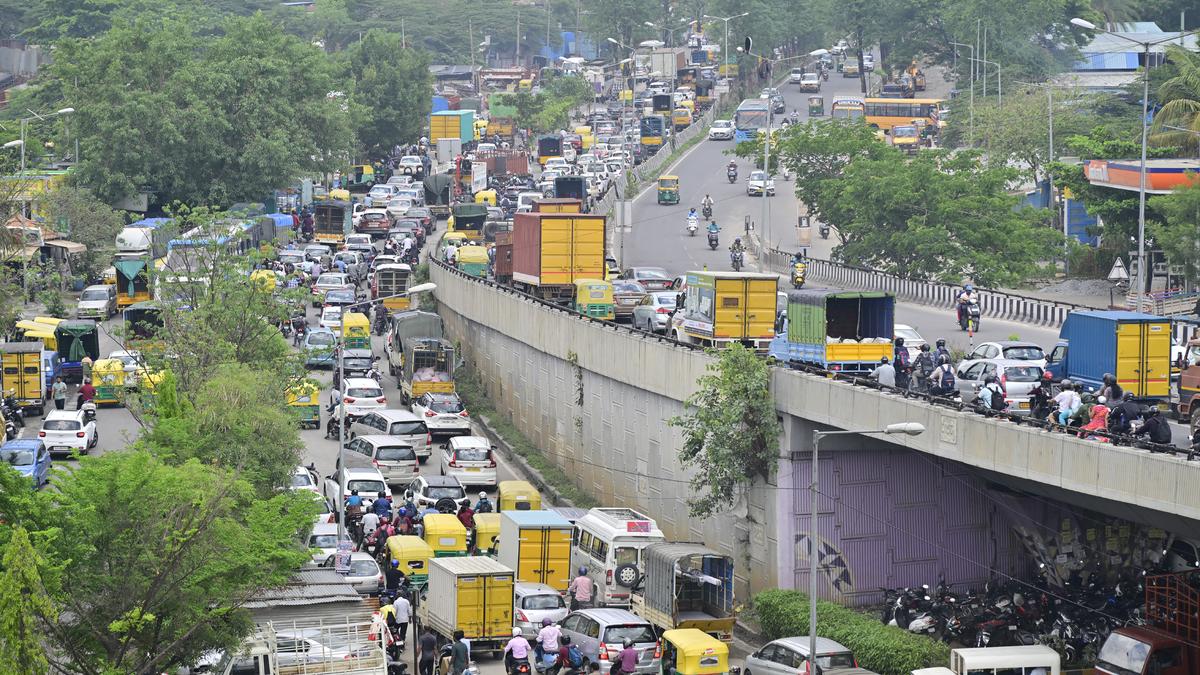
A hackathon to address Bengaluru’s traffic woes Premium
The Hindu
“In terms of congestion, Bangalore is one of the worst cities in India,” says Dr. Raghuram Krishnapuram, a senior scientist at the Centre of Data for Public Good (CDPG), Foundation for Science Innovation and Development (FSID), in Bengaluru’s Indian Institute of Science (IISc).
“In terms of congestion, Bangalore is one of the worst cities in India,” says Dr. Raghuram Krishnapuram, a senior scientist at the Centre of Data for Public Good (CDPG), Foundation for Science Innovation and Development (FSID), in Bengaluru’s Indian Institute of Science (IISc).
That traffic is as ubiquitous to the city as its pleasant weather, start-up ecosystem and green spaces is nothing new. In 2022, according to the TomTom Traffic Index, Bengaluru was ranked the world’s second-most congested city, only beaten by London for this dubious position. And while this has improved – Bengaluru dropped to 6th on this list in 2024 – it continues to be one of the country’s most congested cities, something any Bengalurean will attest to.
To address the problem, CDPG and the Bengaluru Traffic Police (BTP) have come together to organise a hackathon called The Bengaluru Mobility Challenge. The hackathon aims to provide innovative solutions to the city’s traffic woes using AI and geospatial technologies. “There is a huge potential to make a difference to Bangalore,” says Krishnapuram.
FSID, previously called SID (Society for Innovation and Development), is IISc’s incubation centre, harnessing the scientific knowledge available at IISc to help society and industry. Among the initiatives that were seeded here was the India Urban Data Exchange (IUDX). The open-source platform was born out of the need to facilitate data exchange between various city departments, government agencies, citizens and the private sector, and to eventually help cities use this data to address complex urban challenges.
On November 24, 2023, when CDPG was created within FSID, IUDX became part of the new centre. Krishnapuram spells out the rationale behind CDPG: “The idea is that cities in India can leverage the data that they have to do impactful things.” “You can derive a lot of insights from the data and enable an entire ecosystem of start-ups that can use that data to build useful applications that will benefit society,” he adds.
Krishnapuram explains the mechanics behind how data could be used for public welfare using an example from Tripura’s capital, Agartala, which has partnered with IUDX. In late 2022, video data from various intersections in the city was collected to help monitor and regulate traffic. “For example, if there are a lot of vehicles accumulating in one direction, you can increase the duration of the green light, etc.,” he says, adding that since the roads are all interconnected, a lot of coordination is needed to ensure that traffic flows smoothly.
Although this particular traffic project did not go beyond the pilot stage, many more such projects are underway. Already, the platform has been installed in nearly 50 Indian cities and is being leveraged for various purposes. In Surat, for instance, IUDX is being used to monitor the bus transit system while in Chennai it is helping the city keep an eye on water levels in its reservoirs and predict floods. “It is also being used to set up green corridors and solid waste disposal schedules… those kinds of things,” he says.











